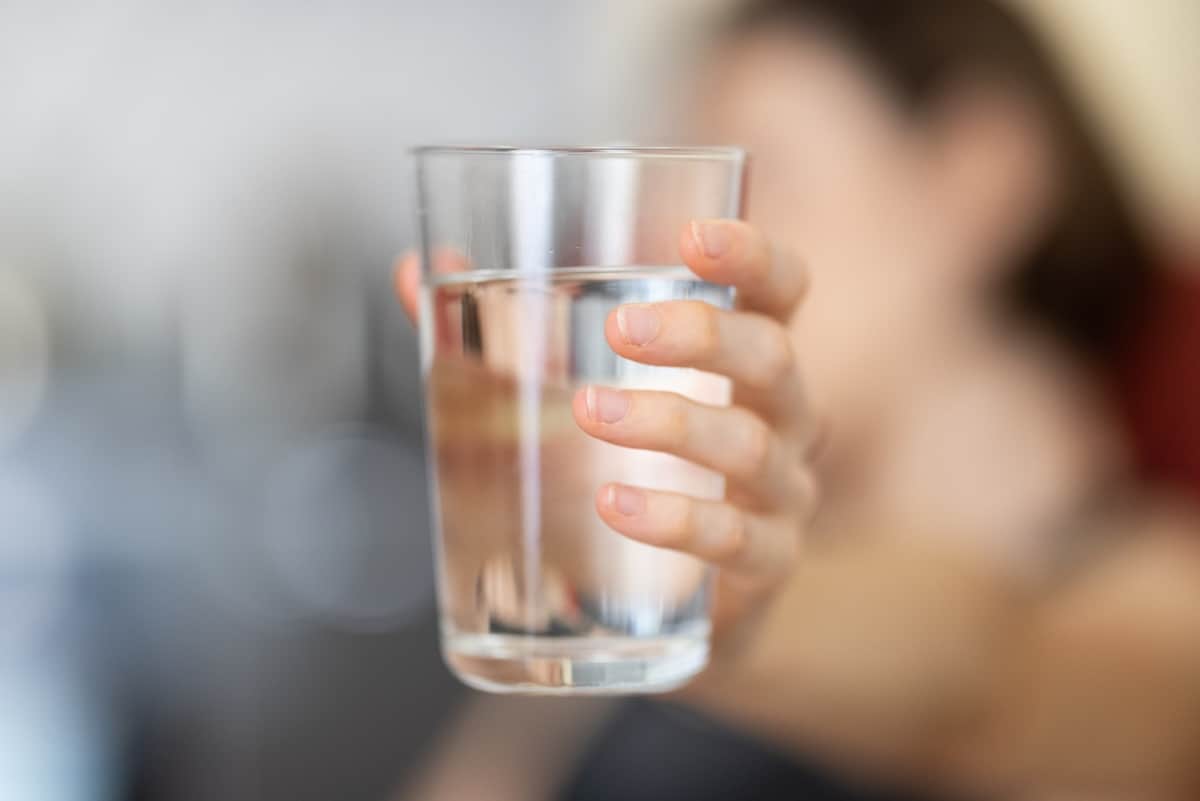Houston is home to over seven million residents and has about 135000 businesses operating within a strong economy. Houston’s culture is diverse, and the quality of life is spectacular. From health care to information technology to aerospace to energy, the city has a solid infrastructure for thriving businesses and growing industries. Coupled with a skilled and trained workforce, you have one of the nation’s thriving cities. You might wonder or ask yourself what Houston water quality is like.
Houston’s tap water is considered safe for drinking because the city has no active violations according to the Safe Drinking Water Act (SDWA). However, an analysis performed by the Environmental Working Group (EWG) found that Houston water quality had 13 contaminants that violate safety guidelines for drinking water.
Some contaminants include excess amounts of chloroform, arsenic, and radium. This in itself can be a cause for alarm. Knowing the quality of the water you drink helps you be a more informed customer, but even better, it guards your health and body safety.
Can you Drink Tap Water in Houston?
Tap water that meets the requirements of the Environmental Protection Agency (EPA) health guidelines will not make you sick. However, it can still have unregulated and regulated contaminants in trace amounts that can potentially cause you health issues in the long run.
This means that Houston’s water quality is of legal standards but not healthy. The legal limits placed by federal laws for water contaminants are now different from those set some years ago.
The EPA is assessing whether the current regulations for tap water pollutants are strict enough to guard against the health dangers of pollutants in tap water. Scientists have made research advancements in establishing the health hazards caused by water contaminants.
Read on to find out what else is in the Houston water system and how it can impact your health.
Houston Water Quality for Tap Water
The water quality was unregulated for some time because the EPA had not significantly changed contamination policies since 1974 when it was passed into law. Some chemicals in water levels have since not been updated to feature in the new regulations.
The result has been that more than 180 unregulated contaminants have infiltrated the country’s tap water, making it unsafe for human consumption. Therefore, the system that is in place to ensure the safety of tap water failed.
The latest report for Houston’s water quality is the 2020 Houston’s water quality report. In the report, there are levels of contaminants that the EPA considers acceptable, but this means that just because they are acceptable does not mean that the water is entirely healthy.
For instance, lead in tap water is allowed up to 15ppb, but the EPA standards have it at zero levels. Sometimes, meeting EPA standards doesn’t just make tap water healthy.
There are several contaminants in Houston water quality for which the EPA has cautioned under a health advisory. We recommend you look at the pollutants in Houston water quality reports. Alternatively, you can get your tap water tested and filtered by a reputable water treatment company.

Houston’s Water Quality: Statistics Every Resident Should Know
The work of the EWG is to inform citizens of any water contamination according to zip codes and areas. The EWG has lower water contaminants limits than the federally allowed limit. As of 2021, EWG has collected over 80,000 water samples for different states.
The samples show that when Americans drink tap water, they expose themselves to agricultural and industrial contaminants. These contaminants are unhealthy and can cause diseases such as cancer, nervous system problems, fertility challenges, brain damage, and more.
Some contaminants can be from the natural environment, for example, microbial contaminants in metal or soil. Human sources also form part of water contaminants such as household waste, pesticides, fertilizers, and industrial waste.
EWG Guidelines
EWG collaborates with scientists to make healthy guidelines for water quality. Health advisors carefully review the standards for water quality using legal standards and science. Currently, the EWG is on its fifth edition of reviewing guidelines to ensure Americans receive healthy and safe drinking tap water. To learn more about water contaminants, visit their website.
Houston Source of Drinking Water
Houston drinking water mainly comes from the San Jacinto River. The river has a history of pollution. Other water sources for Houston include the Chicot Aquifers and the Evangeline. The aftermath of Hurricane Harvey caused many contaminants to spill into the river.
Houston’s water is purified at three water treatment plants, including 40 groundwater plants at the Public Works and Engineering Department (PWE). Other sixteen supplementary plants provide water for the other five Houston systems.
The city is prone to flooding, which causes so much water pollution as pesticides, oils, and other radioactive elements get washed into the water sources.
So, Houston, Texas – What’s in Your Tap Water?
EWG Tap Water Database provides the following data for the City of Houston. You can observe that the website states that “the provided tap water complies with federal health-based water standards.
” Since water quality standards have not been updated since 2021, it means that legally accepted water does not make it necessarily safe.”
In Houston’s tap water, over 49 contaminants are present, and 14 of those contaminants exceed EWG health guidelines.

Contaminants Present in Houston Water Quality
Chlorine in Houston TAP Water
Chlorine is used widely to disinfect water against waterborne diseases. Still, the current amount of chlorine in Houston’s tap water makes it harmful and needs filtering to reduce the chlorine odor and enhance the taste of the water.
Arsenic Contamination in Houston Drinking Water
Arsenic is a toxic metal; it can cause cancer and other diseases. Arsenic originates from water. The highest level of arsenic in Houston’s water was 8 pp per billion. An average of 2.4 pp per billion is allowed by EPA. The Consumer Report gave out the following statement
“EPA standards balance arsenic health effects against the cost of filtering it from tap water,” arsenic levels are known to cause health effects such as circulatory problems and skin damage.”
Lead Concentration in Houston Tap Water
Lead contaminates water through pipes, valves, and fittings and can reach dangerous levels. Analyzed samples from Houston houses show that tap water’s lead concentration is 4 pp per billion.
Contact ONIT Home Today For a Water Test
Petroleum Hydrocarbons and Pesticides in Houston Tap Water
Pesticides and Petroleum Hydrocarbons are present in Houston tap water in recent testing. Water filtration remains the best option to get rid of such toxins.
Other contaminants found in Houston’s water quality include:
- Polyfluoroalkyl substances
- Concentrated Chromium 6 levels
- Disinfection Byproducts
- Atrazine
- Bromodichloromethane
- Dibromochloromethane
- Dichloroacetic acid
- Radiological contaminants
- Trichloroacetic acid
What Type of Water Filter Does ONIT Home Use to Clear Contaminants?
Houston water sources have several contaminants that can affect your health in the long term. Contaminants also change the smell and taste of water and can make you feel sick after drinking. The good thing is there are several options for water filters available to remove water impurities. ONIT Home uses the most suitable filtration system known as reverse osmosis filtration.
Reverse Osmosis Water Filtration System
Highly regarded as one of the most effective filtration methods, reverse osmosis (RO) safely removes water contaminants to provide you with clean, great-tasting water. RO filtration is commonly used for water purification in houses, aquariums, faucets, and restaurants. It removes contaminants using pressure through a semipermeable membrane.
Water flows from the concentrated side to the less concentrated side to provide clean drinking water, known as the permeate. RO works by blocking contaminants from the less concentrated side. Visit ONIT Home today to get a reverse osmosis system set up in your home today.

Ready to Learn More About Houston Water Quality?
When it comes to home filtration, look no further than ONIT Home. Based in Texas, ONIT Home is here for all your water needs. From an in-home water test with real-time results, to having a solution plan in place, we’re ONIT.
Our water filters protect against most contaminants in Houston’s tap water. If you are interested in knowing more about water filters made for Houston’s water, or if you have any questions about Houston water quality, visit us online to schedule a free water test or give us a call right now at 1-833-433-0331.



